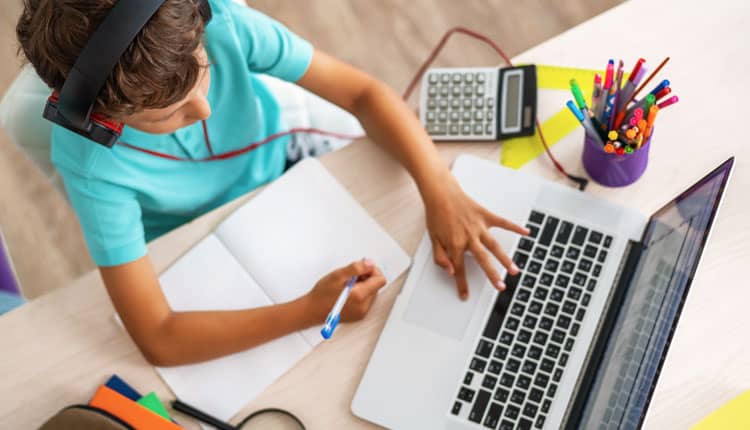By Nirvaan Birla, Founder, Birla Brainiacs
Ensuring education is a fundamental right for every child, irrespective of abilities or disabilities, is essential. Recent years have witnessed a substantial surge in the adoption of technology within education, notably transforming the landscape of special needs education. Educational technology, or edtech, emerges as a catalyst, rendering the learning experience for special needs students not only more accessible but also engaging and inclusive. Edtech facilitates seamless learning and interaction, transcending physical and virtual classrooms. The advent of personalised learning software and accessibility features has adeptly tackled the challenges faced by students with special needs, even amidst the newly adopted remote learning methods arising from the pandemic.
By utilising ed-tech’s transformative power in special needs education, we not only support every child’s fundamental right to an education, but also open the door to an inclusive and enriching learning experience where each student’s potential is realised, their abilities are celebrated, and their challenges are addressed. According to Markets And Markets, with a projected revenue of over $125.3 billion in 2022 and a compound annual growth rate (CAGR) of 13.2, the worldwide tech and smart classrooms market is expected to reach $232.9 billion by 2027.
Here’s a look at how technology is transforming special education and opening up new avenues for students with diverse needs-
Personalised learning experience
Students with exceptional needs learn in unique ways and at a different pace than students without special needs. In addition to helping students with course material and guiding them at different speeds, teachers may also need to provide them with physical assistance if they have physical limitations or mobility concerns. Since these kids have different needs, they gain the most from a personalised learning strategy that addresses their unique challenges and lets them go at their own pace. In this context, ed-tech software makes it easy for instructors to provide students with individually tailored learning experiences by utilising assistive technology solutions such as screen readers, AI, VR, speech recognition software, and more.
Video conferencing tools
Video conferencing applications have become a transformative force in special education classrooms, revolutionising the learning landscape for students with disabilities. The advent of these apps has introduced the convenience of remote or virtual instruction, providing students with the flexibility to access education from the comfort of their homes or alternative locations. This not only accommodates diverse learning needs but also enhances the overall accessibility of education. Furthermore, these platforms serve as dynamic hubs for communication, facilitating seamless interactions between teachers, parents, and other professionals crucial to a student’s educational progress.
Touch-screens
Touch screens have fundamentally transformed the landscape of learning in special education classrooms, offering students an intuitive and accessible means of interacting with technology. This innovation significantly enhances accessibility by providing students with disabilities with an easy-to-use interface, enabling them to navigate and control curriculum content effortlessly. Beyond accessibility, touch screens elevate engagement by allowing students to directly manipulate on-screen content, fostering a more interactive and enjoyable learning experience. This dynamic approach not only addresses diverse learning needs but also contributes to increased motivation and effectiveness in the educational process.
Audiobooks
With audiobooks, individuals with visual impairments or those with trouble comprehending can interact with written text in an auditory format, which can be beneficial for learning in special education settings. This may facilitate these students understanding and grasp of the subject and aid in the development of their listening and comprehension abilities. Additionally, listening to audiobooks can help students become more engaged and interested in the subject, which can boost learning outcomes.
Ability to track and monitor
Effective tracking and monitoring of student achievement is one of the key features of EdTech in special needs education. Teachers and parents can discover more about their students performance, areas of strength, and areas for growth with the help of educational management systems and data-driven analytics. With the help of this data, tailored interventions and supports can be made to ensure that each child gets the help they need to succeed academically. Additionally, by using data to inform decisions about curriculum revisions and instructional practices, this data-driven approach empowers
educators to support students, ongoing development, and success.
By harnessing the transformative power of tech in special needs education, we not only champion every child’s fundamental right to an education but also cultivate an inclusive and enriching learning experience. In our journey, we are thrilled to witness a significant impact, with a remarkable 35% of students on our platform being neural convergent learners. This achievement underscores our commitment to serving the unique needs of special needs children. The active participation of parents has been instrumental in our success, reflecting the collective dedication to fostering a supportive learning environment.
Moreover, the substantial increase in attention levels is a testament to the high-quality care provided by our teachers. Through personalised attention to each child, we have witnessed a drastic improvement in engagement and focus. At the intersection of technology and compassion, we strive to create an educational space where every student’s potential is realised, their abilities celebrated, and their challenges addressed- Mr. Nirvaan Birla
All things considered!
Individuals with disabilities can now access the most up-to-date educational programs, thanks to the use of technology in special education. Students with special needs can access any necessary material online and receive a modern education owing to well-designed hardware and software. Technology facilitates more flexibility and differentiation in educational approaches and aids in providing students with personalised learning experiences. Thus, with the help of contemporary technology, educators can swiftly adjust to a student’s abilities and select from dozens of customised learning strategies to suit their specific needs.



